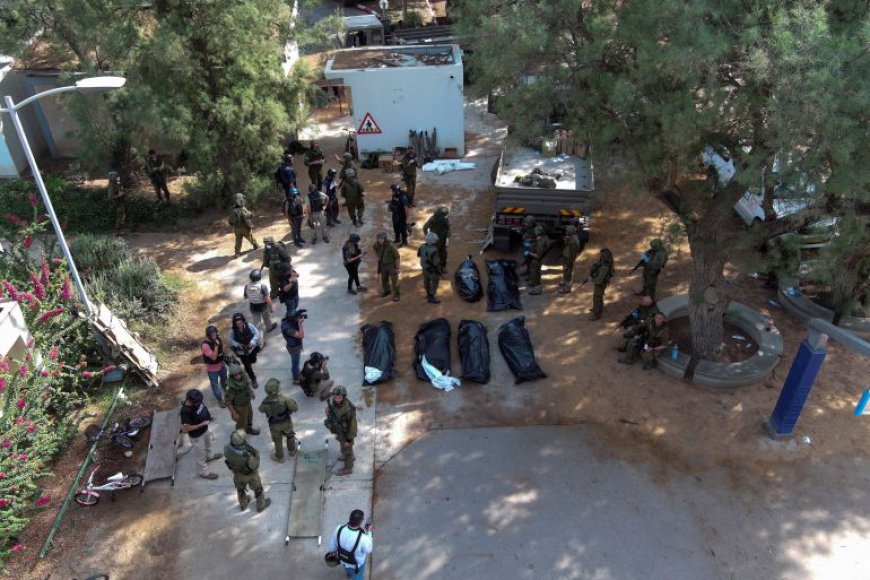Unmasking Media Machinations: Exposing Israel's Strategic Manipulation in the Biden and Babies Saga
Delve into the intricate web of media manipulation in the Israel-Palestine conflict with a critical analysis of the controversial "Biden and Babies" incident. Uncover the pitfalls of unchecked narratives, the global repercussions of false news, and the role of media in shaping perceptions during intense geopolitical conflicts. Rami G Khouri's insights provide a compelling exploration of the dangers and consequences of misinformation in the heart of the ongoing struggle.

In the ever-evolving landscape of the Israel-Palestine conflict, the "Biden and Babies" incident emerges as a poignant example of media manipulation and its far-reaching consequences.
The Genesis: i24News Report and Controversial Figures
The narrative took root in an i24News report by Nicole Zedeck, based on an interview with Israeli reserve soldier David Ben Zion. However, subsequent investigations revealed Ben Zion's controversial background, adding layers of complexity to the unfolding story.
Global Amplification: From CNN to Social Media Storm
The global media landscape swiftly picked up the sensational narrative, with major outlets like CNN reporting beheadings and "ISIS-style executions." The Israeli Prime Minister's spokesperson added fuel, leading to a wildfire-like spread of unverified information on social media platforms.
Media Ambiguity and Clarifications: Unraveling the Truth
Initially ambiguous responses from the Israeli military gave way to clarifications, indicating no evidence supporting the alleged beheadings. By October 12, it became evident that the story was a fabrication, a weapon wielded in the heat of battle to stoke tensions.
President Biden's Role: Ideological Alignment or Manipulation?
President Joe Biden's swift and fierce support for Israel in the aftermath of the incident raises questions about the role of media manipulation in shaping political decisions. The incident seamlessly fits into a recurring narrative in US foreign policy, where allegiances are formed based on perceived moral values.
Consequences of Ideological Warfare: Tensions on Multiple Fronts
The utilization of media to tarnish the character of perceived enemies, even with fabricated tools, reflects a pattern seen in conflicts involving Israel. The collateral damage inflicted on civilians and national infrastructure often takes a backseat to strategic goals.
Double Standards in the Global Arena: Rule of Law and Accountability
The incident sheds light on double standards concerning the rule of law. While the international community supports nations like Ukraine in resisting aggression, a similar right is denied to Palestinians. The selective accountability pursued by the International Criminal Court further underscores the complexity of global responses.
Media's Role in Conflict: A Pivotal Battlefield
The Israel-Palestine conflict unfolds across three primary battlefields – ground military operations, media narratives, and public advocacy. Media scrutiny becomes paramount, considering its pivotal role in shaping perceptions and influencing global opinions.
Vigilance in Media Monitoring: Navigating Sensationalism
As conflicts intensify, the need for closer monitoring of media narratives becomes crucial to avoid being swayed by sensationalized reports. The international community must remain vigilant, ensuring a balanced and accurate representation of events to foster a path towards lasting peace.
Conclusion: Navigating the Media Minefield for Lasting Peace
In conclusion, the "Biden and Babies" incident serves as a stark reminder of the dangers posed by unchecked media narratives in the Israel-Palestine conflict. As the conflict persists, a proactive approach to media scrutiny is essential to counteract the influence of sensationalized reports and work towards a more nuanced understanding of the complex geopolitical landscape.







